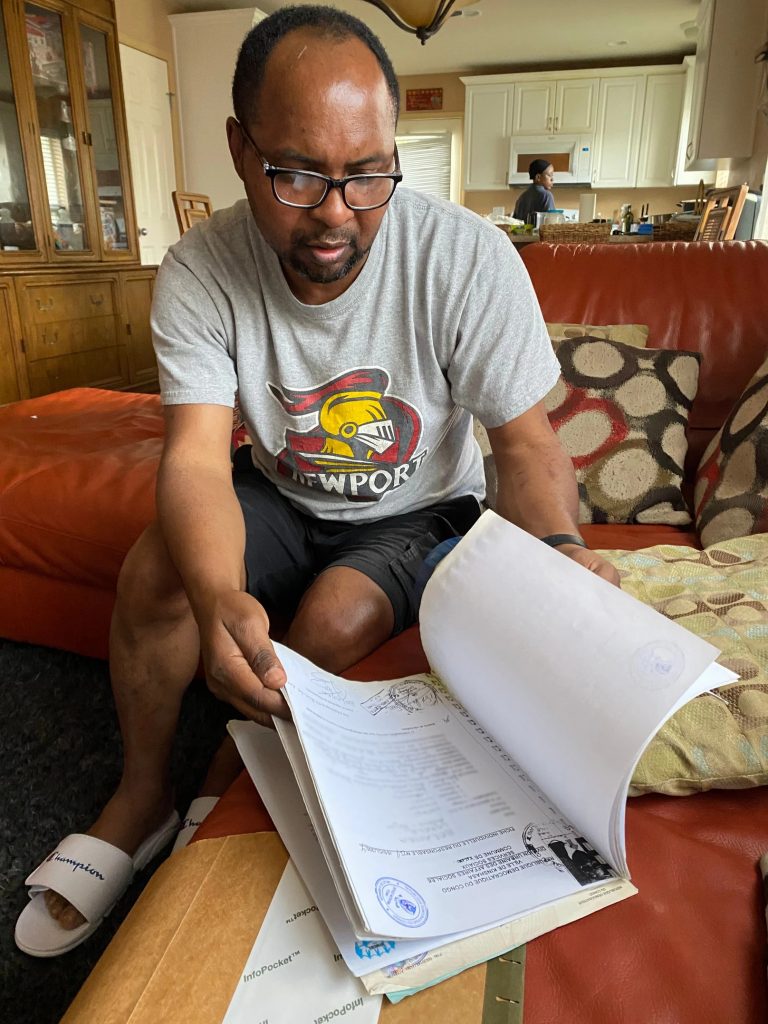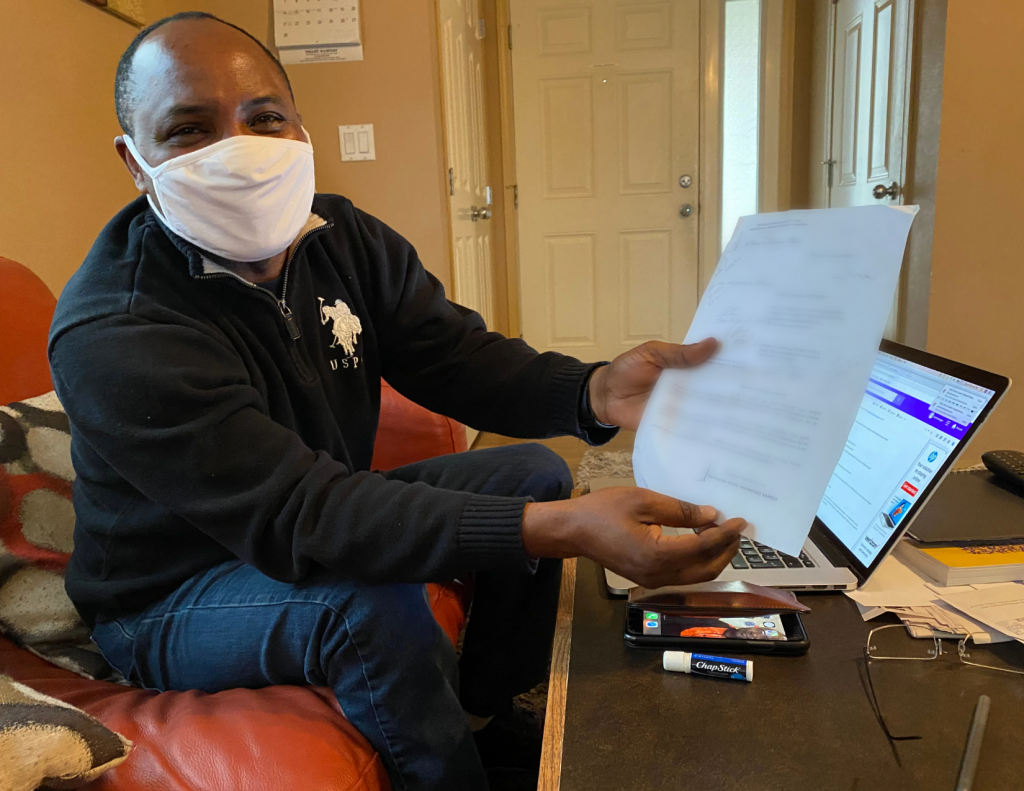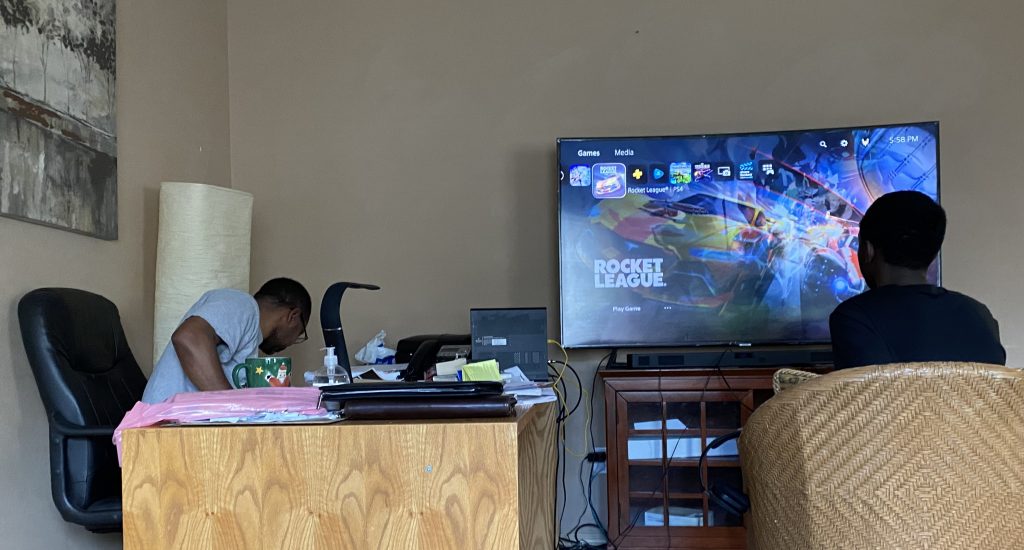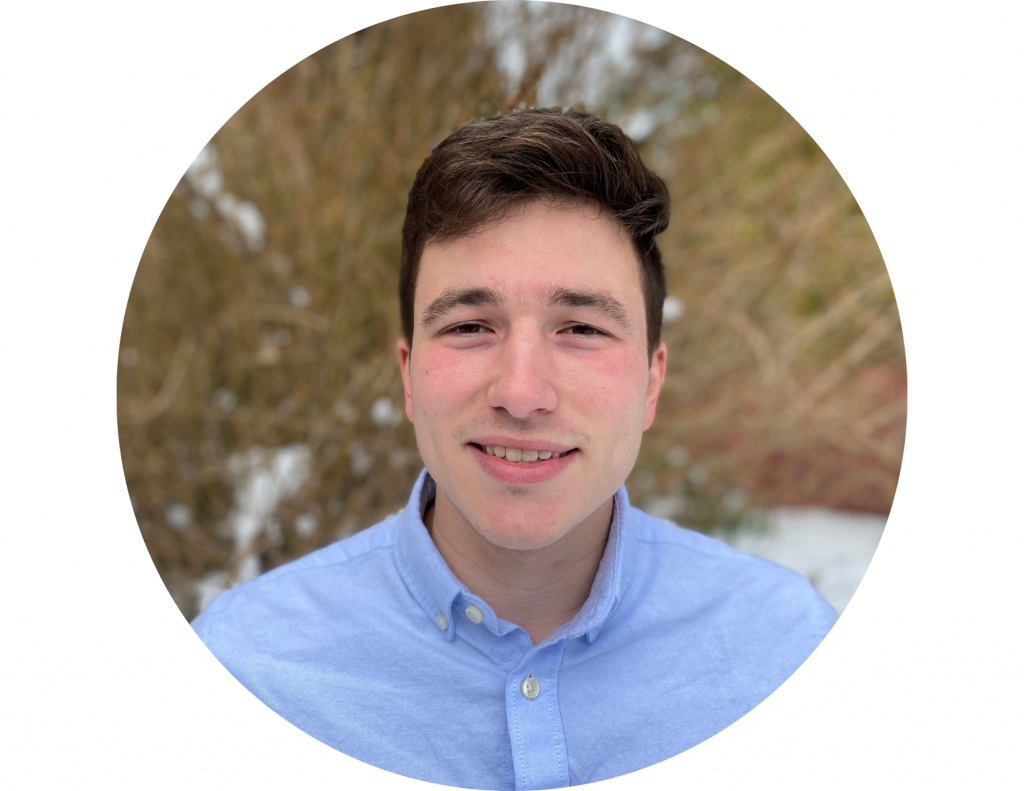Posts Tagged ‘Journalist’
From DRC to the 253: A blacklisted, exiled journalist hasn’t given up working for a better Congo
At his newfound home in Tacoma, Washington, Antoine Roger Bolamba has watched Chris Cuomo criticize Donald Trump on live TV. Seven years ago, working for Radio-Télévision Nationale Congolaise, the national TV station of the Democratic Republic of the Congo, he could not have dreamed of criticizing his president.
“In my home country, you will not finish your program,” he said. “You will see military people; police will come.”
Bolamba narrowly avoided this very fate. Achieving his lifelong dream, he held the spotlight as a primetime anchor for Congo’s national TV station. But when the country’s lack of journalistic freedom became a personal reality, he was confronted by a terrible choice.
A Crisis of Press Freedom
Covering the vast, resource-rich Congo River Basin, Congo is the second largest country in Africa. Several local kingdoms dominated the area before Belgian colonization during the 19th and 20th centuries. Despite gaining independence in 1960, the nation has been plagued by constant internal and external conflicts and subsequent humanitarian crises.
Bolamba was born in Kinshasa, Congo’s capital, and raised by Catholic charismatic parents. When he was still young, Bolamba knew he wanted to become either a priest or a journalist. He wanted to serve God and inform people.

from an educational nonprofit he started in Congo. (Photo/Daniel Hart)
He interned for a private TV broadcaster while studying journalism at the Catholic University of Congo. In 2010, Bolamba started working for the national TV station. Within six months, he was presenting the 8 p.m. news for the country’s largest TV audience.
He didn’t stop there. In 2012, he was hired as a press attaché for the country’s Planning Ministry. His work took him around the world. In 2013, he created a video on investment opportunities in Congo and presented it alongside the Planning Minister at the U.S.-Africa Business Summit in Chicago. In 2014, he traveled to Mexico City to argue to the Extractive Industries Transparency Initiative that Congo’s mining industry was making meaningful progress toward benefiting the country’s citizens. That same year, he covered a summit in Belgium for the international Congolese diaspora.
For all his success, he was very aware that all was not well for journalists in Congo.
Reporters Without Borders, an international nonprofit that advocates for press freedom, ranked Congo 149 out of 180 in its 2021 World Press Freedom Index. Also this year, Freedom House, a U.S. government-funded research institute, gave Congo a 20 out of 100 ‘not free’ score for political rights and civil liberties.
Bolamba described journalism in Congo as neither free nor independent. Known locally as coupage, payment from sources is an everyday occurrence and practically journalists’ only form of income.
“You are depending on the politician or on people who need you to pass their message,” Bolamba said. “So because you get paid from there, you cannot be objective.”
In addition to the lack of financial independence, Bolamba said he and other journalists were watched closely by government officials as they presented the news, especially when they spoke about the government. He knows many colleagues who have been imprisoned as a result of their work. Others have died under mysterious circumstances. Bolamba learned to be careful what he ate or drank, especially with politicians. In taxis, he always sat beside the door, not between other passengers. He took care to protect his reputation from defamation, avoiding the appearance of anything that might be professionally unacceptable.
In 2012, the country’s information minister accused another politician of having sex with a minor, and Bolamba investigated. Although the politician was jailed, Bolamba’s coverage cast the allegations into doubt. He doesn’t know for sure, but he suspects that his work on this story may have led to what came next.
The Crash
One day in 2013, the TV station’s human resources director quietly showed Bolamba a letter that the director of the station had sent to several government officials. The HR director wouldn’t give Bolamba a copy, fearing for his own safety. The letter stated that Bolamba was working against the ligne editorial, the editorial policy the government expected to hear on national TV. It claimed that Bolamba was giving too much airtime to the opposition. The HR director warned that Bolamba’s director was trying to destroy his reputation and that he was in danger of being imprisoned or killed.
As Bolamba read the letter, he was shocked and bewildered. By the time he left the office, he knew he could not stay in Congo.

Eventually, an auditor who Bolamba knew was able to surreptitiously secure a copy of the letter for him. He asked friends and colleagues for help and advice. Over and over, they told him the same thing: your life is in danger; you have to leave. Fortunately, Bolamba had a U.S. visa from his previous work trips. However, his sons and Claudia, his wife, did not. She implored him not to leave.
“‘It looks like something bad is coming, so I need to leave,’” Bolamba recalled telling her. “She insists, ‘Don’t do that! I have kids.’”
As Bolamba remembered agonizing over the possibility of leaving his wife and four sons behind, he stopped, unable to continue for several minutes. He silently wiped away tears triggered by the memory of that separation.
Slowly, in a low, constricted voice, he began his story again, recounting how Claudia left with the children for another part of the country, far from Kinshasa.
“In normal time, I could not accept that my spouse and kids live there,” he said. “No water, no electricity. So no car. No good school.” He said the decision still haunts him.
On March 1, 2015, compelled by the real possibility of arrest or murder, Bolamba left the country.
“I arrived here in Seattle with nothing,” he said. “So I restarted a new life from the crash.”
He stayed with various friends for weeks or months at a time. He sent documentation of his experience, including the letter that had blacklisted him, to U.S. Citizenship and Immigration Services. They sent him a work authorization card to use while his case was considered. Over the next few years, Bolamba took jobs as a security guard, a recycling sorter and a Lyft driver.
In 2018, he received the news he had been hoping for: he had been granted asylum. He received his Green Card, confirming his status as a permanent U.S. resident. Then, he went to World Relief, looking for help to bring his family from Congo. World Relief’s Immigration Legal Services team provided a cheaper option for help with submitting the needed forms. That year, Bolamba’s wife and sons were able to join him in Seattle. Bolamba thanked God for reunifying his family.
At the same time, Bolamba said he continues to grieve what he lost. Since arriving, he has worked to survive, not to pursue journalism. He wonders if he will never do his dream job again.
“I was thinking about that today again,” he said. “If I didn’t take that decision to be proactive, I don’t know what should happen. I don’t know. But I took this action. Today I can live with my spouse and my kids – far away from my business, my job, my family, my friends.”
Start Somewhere
In spite of his exile, Bolamba remains committed to the journalistic ideal. While he currently works as a caregiver, he is eager to return to reporting. In March, he received certification as a public relations consultant and completed online courses in human rights and diplomatic protocol. He is a member of the Seattle Association of Black Journalists.
Looking to the future, he is working to build a public relations channel called Pano 5 as well as a geopolitical podcast focused on Congolese politics, poverty and natural resources. He has plans for a nonprofit, African School of Family Wellbeing, that would work to improve life for Congolese families.
“I don’t like to count on people anymore,” he said. “I prefer to count on God and listen to myself, what God is telling me to do, go where God is telling me to go.”

He said his accent and lack of vocabulary pose significant challenges.
“I need to start somewhere because it’s kind of a passion for me. But a passion that broke,” he said.
The threat of violence, a harrowing separation from his family and the struggle to rebuild a life far from home shattered Bolamba’s dream. Yet here on the other side of the world, he is reassembling his vision piece by piece. Bolamba is doing all he can to break the pattern of violence and political repression that has plagued his homeland for decades. He said he hopes to see a president legitimately elected through the democratic process.
“My hope is that one day, the Congo will be living in peace, everywhere in the country,” he said.

Daniel Hart is a Seattle-based journalist who writes about politics, immigration, and religion. In 2020, he completed a refugee resettlement internship with World Relief Seattle.


